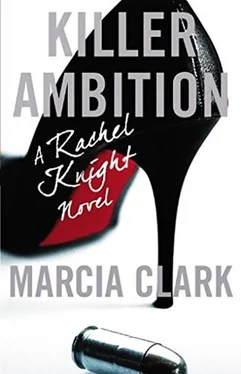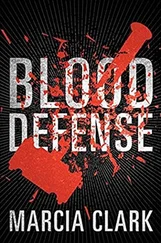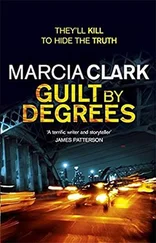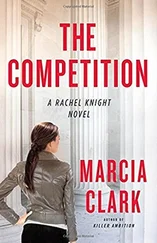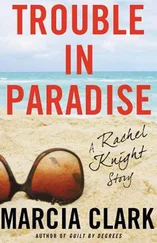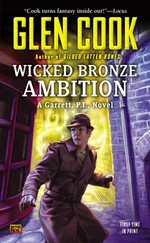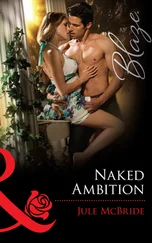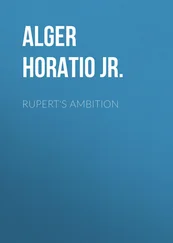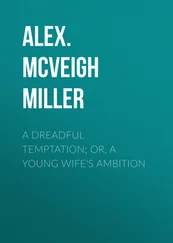“Did he have a car?”
“A white Toyota Corolla. I’ve got an alert out on that too.”
Bailey started the car and pulled out of the parking lot.
“Did you have unis door-knock the neighborhood?” I asked. Any activity over the past few days at Russell’s house in the Hollywood Hills could provide a crucial lead.
“Yeah. No one heard anything weird. The closest neighbor’s assistant was home waiting for a FedEx package, and he remembered hearing car doors slam at the house on Monday morning, but no screams, no sounds of struggle. Nothing unusual.”
Damn it. We needed to catch a break here. We didn’t have time for these friggin’ dead ends. I tried hard to keep myself from imagining what might be happening to Hayley at this very moment. “What’s up with all these assistants?” I asked irritably. “Why couldn’t this neighbor just sign the notice and leave it taped to the door like the rest of us?”
“Yes, let’s blame the assistant for not breaking the case for us. That makes perfect sense.”
I hate being busted for irrational crankiness. I was about to come up with a suitably cutting remark when I noticed that Bailey was driving like we were responding to a robbery in progress. “Why are we heading back to Hollywood? Shouldn’t we at least stop by the Galleria while we’re out here and see if we can figure out where Brian works-or, rather, worked?”
“Because I’ve already got someone tracking down his employment records, and it occurred to me that it might be more important to hit his apartment first.”
She was right, so I shut up and tried to hang on to my stomach as Bailey flew down the winding Laurel Canyon Boulevard. Laurel Canyon climbs from Studio City in the San Fernando Valley up and over the ridge and snakes down the other side into West Hollywood. It’s a storied canyon that was once home to a variety of megatalents, like Frank Zappa, Jim Morrison, Steven Tyler, and Joni Mitchell, and currently home to my bestie Toni LaCollier, who lived at the top of the hill off Kirkwood-though in all honesty she couldn’t carry a tune in a bucket. Toni was already a Special Trials prosecutor when I got transferred into the unit. We’d bonded so fast we agreed that we had to have been sisters in a past life. Her tiny house in the canyon hadn’t been much when she bought it-a lot of the houses in the area had gone to seed-but Toni had the gift of artistry and style. Within six months, she’d turned the run-down “fixer” into a unique little gem.
The canyon retains a lot of bohemian-type charm-the Country Store, where everyone shops for munchies, still sports a hippie-style psychedelic sign-but the main canyon road, originally designed to handle only Sunday cruising, has become a primary artery for the burgeoning Valley population that travels into Hollywood. As a result, the road turns into a parking lot at least three times a day.
Luckily, we’d missed the morning-drive slog and Bailey made it into West Hollywood in less than twenty minutes. Brian’s apartment was in one of those typical nondescript buildings-a box with square windows in the heart of Hollywood on North Vista Street. The building across the road had tiny balconies where tenants grew plants and stored kids’ toys and bicycles, evidence that humans lived there. Brian’s building didn’t have any of that. The only visible signs of individuality were the differing curtains, and one hanging crystal ornament. It probably made a nice rainbow when the sun hit it. I miss unicorns.
Brian’s landlord was frowning suspiciously at the uniformed officers who’d shown up to secure the place. He was short, and his wifebeater T-shirt strained to cover a paunch that looked like a second-trimester pregnancy. The plaid Bermuda shorts and black socks with slippers completed the look nicely.
“If Drew knew about the hunks you ran into on the job, he’d go out of his mind,” I said.
“Yeah, I’ll bet Graden would lose a lot of sleep too.”
Bailey introduced herself to the landlord and held out her badge. He took it and squinted for a moment, then pulled a pair of filthy glasses out of his shorts pocket, put them on, and scrutinized the identification before handing it back to her.
“And you? Who are you?” he asked me in a heavy Middle Eastern accent.
“Rachel Knight, deputy district attorney. I’m a prosecutor in the Special Trials Unit.”
“Easy to say. Let’s see some ID, Ms. Special Attorney.”
“Look, Mr.-,” Bailey began, her voice showing the strain of holding back words she’d regret.
“Gardanian. And I own the building, so I have the right-”
In no great mood to begin with, and out of patience, I brandished my badge and held it under his nose, just to shut him up. He took it and gave it the once-over, then handed it back to me.
“Okay.” He waved us in, then shuffled back into his apartment.
A uni who was a classic mesomorph with bulging biceps-the type I used to think was dreamy back in high school-gestured for us to follow him down the hall to Brian’s apartment. He flashed us an amused look as we fell in behind him.
“He give you guys trouble too?” I asked.
“He tried to shake us down,” the uni said. “Claimed the tenant took the only key and he’d have to charge us for the time and trouble to get another one made.”
“You’re kidding.”
“Nope. So I told him not to worry, we had a skeleton key that would work on all doors. Then we showed him our battering ram. All of a sudden he remembered he kept a key for emergencies.”
We got to the end of the hall and he gestured to the open door on the left.
“You cleared it?” Bailey asked. “No one here?”
“Empty. From the looks of it, I’d say whoever lived here isn’t coming back.”
Bailey and I walked in. The apartment had that damp mildew smell that old, poorly maintained buildings get. The threadbare but richly stained sofa and badly nicked wooden coffee table in the living room told me this had probably been a furnished apartment. I realized that we shouldn’t be tromping around in what might be another crime scene.
“Shouldn’t we get everyone out of here and call Dorian?” I asked.
Bailey sighed. “Too late. I couldn’t take the chance that Brian might be holding Hayley here, or that she might be…”
I nodded. If there’s a victim who’s potentially wounded or in danger, you don’t call the criminalist and wait to process the scene. Bailey had rightly called in the cavalry. But that meant that by now at least a dozen officers had already barged in and checked every nook and cranny, so our being here wouldn’t make a whole lot of difference. But that didn’t mean I wanted to be in the zip code when Dorian arrived.
Bailey and I kept our hands to ourselves to at least avoid adding our prints to the hundreds left by all the unis as we made our way through the tiny one-bedroom. And I saw that the uni was right: the place was vacant. The closets and medicine cabinet were standing open and empty, and there was nothing on the pine nightstand or dresser. I noticed that the bed was made neatly, but the cover was mussed-as though someone had sat on it.
“Did any of you guys sit on the bed?” I asked the uni.
“Not that I saw. But I’ll check and confirm.”
“Has anyone door-knocked the tenants?” Bailey asked him.
“Jennings, Kowalski, and Lopez took the duty. I think there’s only, like, twelve units, so they’re probably about done now. I’ll tell ’em you’re here.”
Bailey nodded and I watched him walk away. She caught me enjoying the view. “You still shopping?” she asked.
“No, Sister Mary Catherine. But there’s no law against looking, is there?”
Bailey smiled. Her cell rang and she moved to a corner to take the call. I went to check out the kitchen. Using a dish towel, I opened the refrigerator. Not much there. Just a pint of milk, a half-eaten loaf of potato bread, and a near-empty jar of peanut butter. That told me Brian hadn’t left in haste. He’d eaten down his food reserve, knowing he was going to leave. But he also might’ve been too poor to keep a lot around. Bailey was still on the phone when the uni came back. I thought it might be time to find out what they called him when he was at home. No harm in asking a guy’s name, right?
Читать дальше
